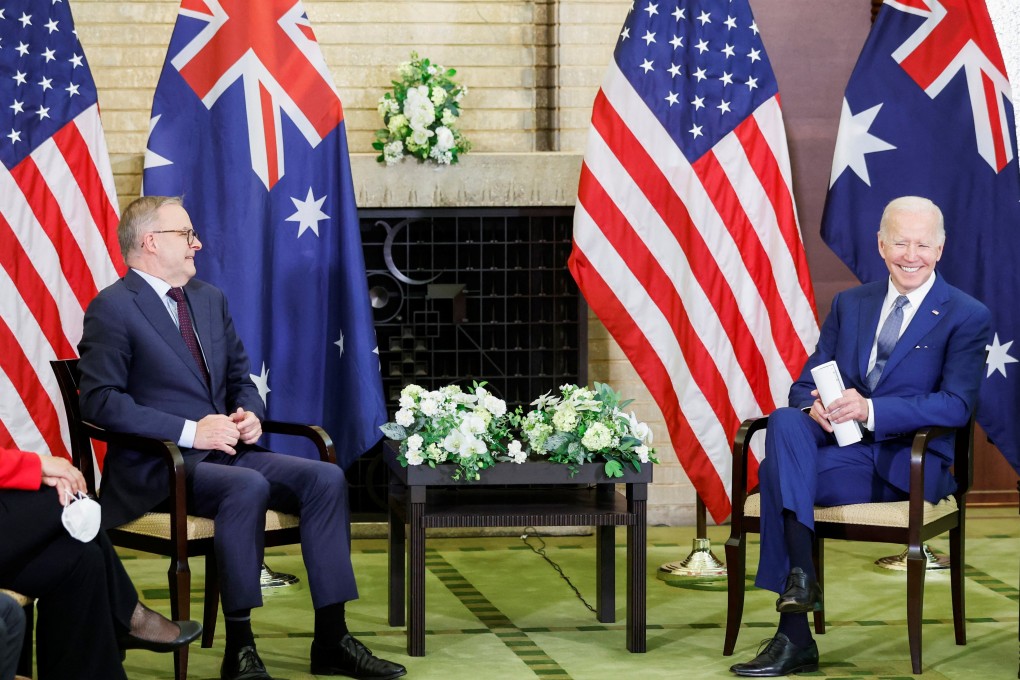Opinion | For loyal US ally Australia, defending Taiwan may well be a test too far
- Canberra has been unflinching in its support for US policy in the Indo-Pacific, but Biden’s vow to defend Taiwan militarily should have its ally worried
- If Australia wants to avoid following the US into a war, the new Labor government must find a way out of the dangerous anti-China rut left by the Liberal Party

They must lead the unofficial geopolitical loyalty league worldwide. For if there is one country and people in the Asia-Pacific that has logged more miles through mud, jungle and desert to follow the US military almost anywhere, Australia is the one.
Don’t the Aussies always answer the call? Korea, Vietnam, Afghanistan, Iraq. It started back in 1951 with a three-way security treaty (including New Zealand) that continues today, and where or when it will stop, nobody knows.
Certainly, follow-the-leader Australia has been a great catch for Washington. With such gold-standard allies, you might well feel better about your chances of shaping large parts of the world to your liking. That is precisely America’s desire, and as President Joe Biden has said over and again, you won’t get very far without allies.
Australia’s recent national election might have raised the Washington-Canberra relationship to a higher level of electorate scrutiny, especially with China now banging at economic doors and raising geopolitical challenges of the largest kind.
Coming down on Huawei, rehashing Beijing’s human rights practices and policies, exposing Chinese foreign investments and dual-exposure research collaborations, passing “foreign interference” laws – they did not want for bipartisan support.

